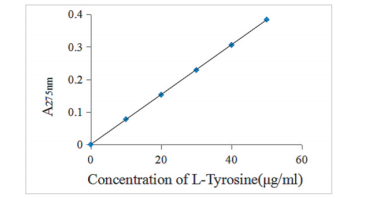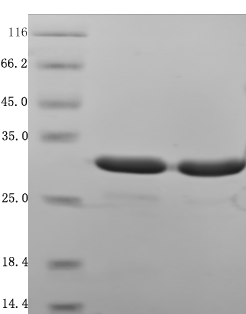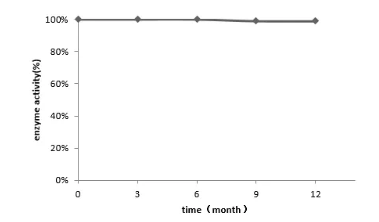Protease k Liquid
Product Introduction
Proteinase K is derived from Tritirachium album Limber. It non-specifically cleaves the peptide bonds at the carboxyl end of aliphatic and aromatic amino acids and has a strong ability to degrade natural proteins. It has high activity in the buffer for extracting DNA and RNA and can be used for the separation of plasmid or genomic DNA and RNA. It is a key reagent for DNA extraction.
Product Feature
- Good batch stability: Strict production process and quality inspection standards, small batch differences, inter-batch enzyme activity CV% <= 1.9%, far lower than the industry average (5%);
- Stable production capacity: Large-scale production system, monthly production capacity of lyophilized powder >70Kg, stock supply cycle of 3 days, long-term stable supply without pressure;
- Suitable for a variety of sample types: Not only suitable for processing COVID-19 nasopharyngeal swab samples, but also for extracting DNA and RNA from various complex samples, such as swine fever virus, influenza virus, HBV and HCV;
- Customized services: Customize product form, packaging and specifications according to customer production requirements, eliminating the trouble of dispensing and improving work efficiency.
Product Application
- RNA and DNA extraction
- In situ hybridization and other molecular experiments
Product Data
Calibration curve
Prepare standard solutions of L-tyrosine at different concentrations and directly measure their absorbance (A) at 275nm with a UV spectrophotometer. Plot a calibration curve with absorbance A as the ordinate and tyrosine concentration as the abscissa. According to the calibration curve, the specific enzyme activity is calculated to be ≥30 U/mg.

Figure 1. Calibration curve determined using L-tyrosine as the standard.
Purity
The protein concentration is detected by SDS-PAGE electrophoresis. The purity of Proteinase K produced by our company is above 95%, with a size of 28.9kDa.

Figure 2. SDS-PAGE electrophoresis of Proteinase K.
Stability
Proteinase K powder was stored at 4°C for one year, and enzyme activity was measured every month. The results are shown in the figure below, indicating that Proteinase K has good stability and enzyme activity is maintained above 95%.

Figure 3. Stability test of Proteinase K at 4°C.

